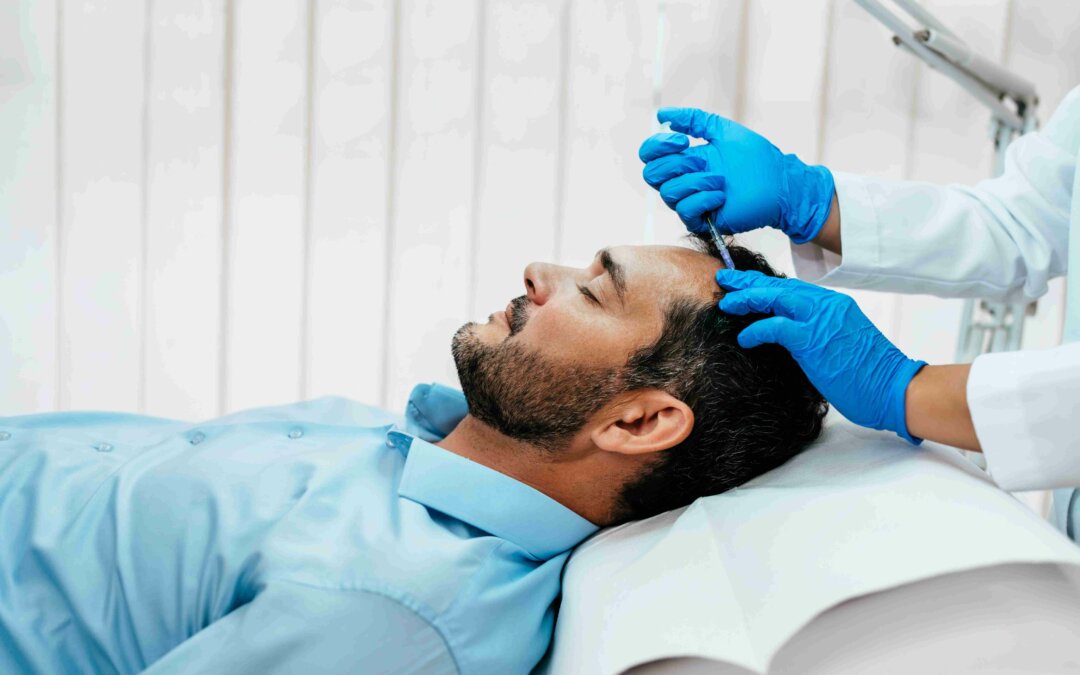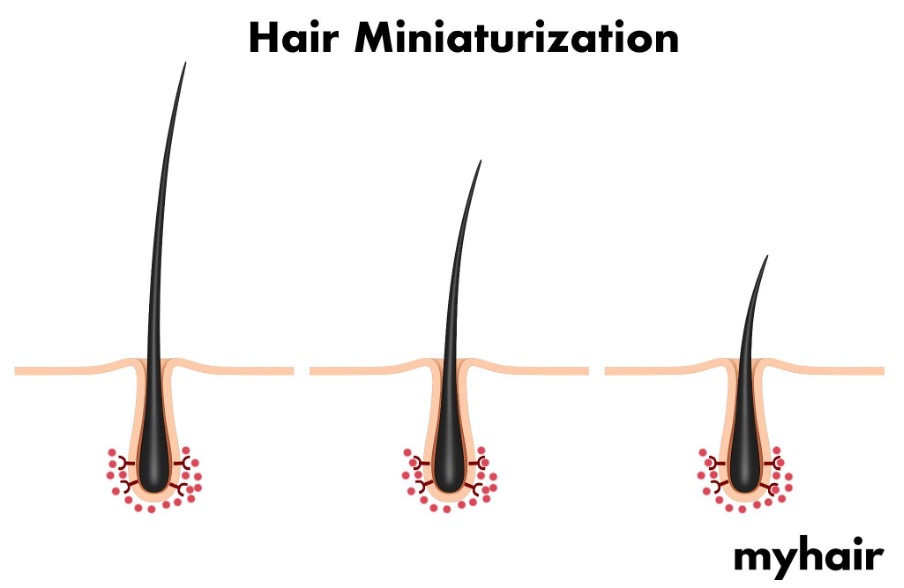If you’re interested in growing your hair out, regrowing lost hair, or stopping hair loss, you’ll probably have realized that there are a whole lot of hair growth supplements out there. Some of these are advertised as hair boosters and strengtheners, while others market themselves as hair loss supplements.
You’re not alone if you’re wondering if any of these nutrient pills actually work (or help at all). The truth is that supplements can make a big difference to many people — but not everyone needs them.
If work and life have you so busy that you’re on UberEats and Postmates every night, or you’ve been swapping meals for snacks, your hair might definitely benefit from a supplement. Eating excessive amounts of fast food and skipping meals would put anyone on the highway to nutrient deficiencies, which can affect both your health and hair growth.
Nutrients are important for good health
In order for your body to stay healthy, you need to consume enough nutrients. Nutrients are broken down into two categories: macronutrients and micronutrients. Micronutrients refer to vitamins and minerals, while macronutrients are protein, fat, or carbohydrates.
The Food and Drug Administration (FDA) recommends that people consume a certain amount of macronutrients and micronutrients on a daily basis. In general, people following a western diet should consume 275 grams of carbohydrates (including 28 grams of dietary fiber), 50 grams of protein, and 78 grams of fat each day.
When you eat foods with these macronutrients, you’re also ingesting micronutrients. Each day, the FDA recommends that you consume the following vitamins in these amounts:
- 900 micrograms (RAE) of vitamin A
- 1.2 milligrams of thiamin (vitamin B1)
- 1.3 milligrams of riboflavin (vitamin B2)
- 16 milligrams of niacin (vitamin B3)
- 5 milligrams of pantothenic acid (vitamin B5)
- 1.7 milligrams of vitamin B6
- 30 micrograms of biotin (vitamin B7)
- 400 micrograms of folate (vitamin B9)
- 2.4 micrograms of vitamin B12
- 90 milligrams of vitamin C
- 20 micrograms of vitamin D
- 15 milligrams (of alpha-tocopherol) of vitamin E
- 120 micrograms of vitamin K
The FDA also says you should ingest the following minerals in these amounts each day:
- 1,300 milligrams of calcium
- 2,300 milligrams of chloride
- 35 micrograms of chromium
- 0.9 milligrams of copper
- 150 micrograms of iodine
- 18 milligrams of iron
- 420 milligrams of magnesium
- 2.3 milligrams of manganese
- 45 micrograms of molybdenum
- 1,250 milligrams of phosphorus
- 4,700 milligrams of potassium
- 55 micrograms of selenium
- 2,300 milligrams of sodium
- 11 milligrams of zinc
Are nutrients important for hair growth?
Like every other part of your body, hair is reliant on nutrients like vitamins, minerals, and amino acids. This is because, as the publication Hair and Scalp Treatments states, hair follicles depend on nutrients to function.
A review in the journal Dermatology and Therapy stated that iron, B-complex vitamins, vitamin C, vitamin D, and selenium are all related to hair health. Some of these hair vitamins are directly related to hair graying and whitening, while others are more specifically linked to growth. According to a study in the Nutrafoods journal, hair follicles are also dependent on amino acids, which are essential since hair is mostly made up of protein.
It’s probably no surprise to hear that nutritional deficiencies are common in people with pattern and stress-related hair loss, as a study in the International Journal of Trichology reported. This study found that most people with androgenic alopecia or telogen effluvium were deficient in amino acids: specifically, histidine, leucine, valine, and alanine. About half of these people were deficient in the amino acid cysteine, 30 percent had copper deficiencies, and nearly 12 percent were deficient in zinc.
“Micronutrients are major elements in the normal hair follicle cycle, playing a role in cellular turnover.“
Hair growth supplements are for hair follicles
If you’re considering taking a hair growth supplement, keep in mind that your hair strands are dead. When you take hair growth supplements, what you’re actually trying to do is nourish your hair follicles.
Hair follicles produce each individual hair. Unlike your dead hair strands, follicles are very much alive. They live in your skin, and are so complex that they’re sometimes referred to as mini-organs.
Any benefits you see when taking hair supplements will first affect the hair follicles in your scalp. With time, you’ll see these benefits start to show in your hair, too.
A healthy diet usually equals healthy hair
If you’re the type of person who follows a healthy diet — we’re talking salads, stir-fries, sauteed or boiled veggies with every meal, smoothies, and even fresh fruit and veg as snacks — there’s a good chance you get all the nutrients you need each day without issue. A diet rich in a mixed variety of fruits and vegetables is almost guaranteed to give you all the nutrients you need for a healthy body and healthy hair.
Now, hear me out: you don’t need to be a vegetarian or vegan to be healthy. Fruits and vegetables are just great sources of micronutrients. It doesn’t matter if you like steak or salmon, too — what’s important is that you’re not snacking on a bunch of potato chips, pretzels, french fries, or gummy bears each day.
Junk foods and fast foods are fine in moderation (we all know they’re tasty, okay?). They’re just not chock full of nutrients, so it’s best to eat them sparingly. The same advice applies to processed carbs, like white bread, pastries, sodas, and most cereals (because of that added sugar!).
Nutrient deficiencies? They really really aren’t so uncommon. They often occur “because of either dieting, poor nutrition, or intense stress.” And if they happen, “your body will shut down your hair growth first and redirect nutrients and energy to the organs that need it most.”
I eat healthy! Should I still try taking hair supplements?
Even if you eat a healthy diet, you might still be interested in taking supplements for hair growth or to counteract hair loss. Most people can get all the nutrients they need from a healthy diet and don’t need any additional supplementation. However, this isn’t the case for everyone. People who can benefit from supplements include people with chronic health problems, heavy alcohol consumers, and certain hair loss disorders.
Supplements can benefit people with gastrointestinal problems
Gastrointestinal problems aren’t referring to the stomach flu or other mild gut issues. People with conditions like irritable bowel syndrome, Crohn’s disease, and other chronic gastrointestinal conditions often struggle to absorb nutrients properly. If you have a malabsorption condition, you should talk to a dietitian about how you could benefit from nutrient supplements.
Supplements can benefit people with chronic health issues
If you have long-term or ongoing health issues, especially ones that affect your appetite or ability to eat regular meals, vitamin and mineral supplements can have a huge positive impact on your health. Your healthcare practitioner has likely talked to you about the benefits of nutrient supplementation — if they haven’t, speak to them about the potential benefits.
Supplements can benefit people with a history of nutrient deficiencies
It can take a while to fix a nutrient deficiency. Sometimes, your doctor might even recommend that you inject certain vitamins or minerals in order to counteract the deficiency’s effects, which can include hair loss. Supplementation can help you get deficient levels back to normal, and might be a particularly good idea if the deficiencies were caused by a restrictive diet.
Supplements can benefit people who consume alcohol often
Alcohol, especially in excess, can prevent the absorption of nutrients. Even if you’re eating a healthy diet, too much alcohol can prevent your body from actually being able to use and process the vitamins and minerals in the foods you eat.
Supplements can benefit people with certain hair loss disorders
Not all hair loss conditions benefit from nutrient supplementation. However, nutrient deficiencies have been linked to certain conditions, like androgenic alopecia, alopecia areata, and stress-related hair loss. Resolving these deficiencies through supplementation can help combat hair loss.
Hair supplements can help certain types of hair loss
Certain forms of hair loss have been associated with nutrient deficiencies. According to the Dermatology and Therapy review and International Journal of Trichology study, these include conditions like:
- Androgenic alopecia (pattern hair loss)
- Alopecia areata (an autoimmune condition that usually causes patchy hair loss)
- Telogen effluvium (stress-related hair loss)
In these cases, supplementation has the potential to resolve the deficiencies and help counteract hair loss.
Other types of hair loss may also benefit from supplements. For instance, a case study in the Journal of Cosmetology and Trichology reported that people with monilethrix, a genetic hair loss disorder that causes thin, fragile strands of beaded hair, may also be able to benefit from additional nutrients.
In this study, hair loss supplements containing a mixture of nutrients were able to help improve hair shaft structure and hair strength, reducing the hair breakage that monilethrix causes. The supplements contained:
- Amino acids
- Antioxidants
- B-complex vitamins (including biotin)
- Calcium
- Iron
- Magnesium
- Omega 3 fatty acids
- Vitamin C
- Vitamin D
- Zinc
Hair loss supplements: how to choose them
In an ideal world, everyone would be tested for nutrient deficiencies on a regular basis. Wouldn’t it be helpful to know exactly which amino acid or vitamin you have low levels of? But that’s not the case — at least not for most people!
If you plan on taking a nutrient supplement and don’t plan on consulting a dietitian first, consider which vitamins or minerals you think you lack. For example, a vegan or lactose-intolerant vegetarian might know they’re likely to have low levels of vitamin B12 because this vitamin is most commonly found in animal products.
Now, hair supplements are rarely sold as an individual vitamin or mineral. Most are multivitamins, or contain a combination of nutraceuticals and botanicals. These are generally antioxidant-rich ingredients with a range of other benefits.
According to a study in the Journal of Drugs in Dermatology, nutraceuticals and botanicals include ingredients like curcumin, saw palmetto, ashwagandha, piperine, and marine collagen. Some of these, like curcumin, are well-known antioxidants that could benefit anyone. Others, like saw palmetto, are DHT (dihydrotestosterone) blockers. DHT is a hormone, and blocking it is most likely to benefit people with androgenic alopecia.
Keep in mind that the most common type of hair loss, androgenic alopecia, is progressive and caused by a mixture of genetic and hormonal factors. Fixing a nutrient deficiency or taking a supplement can’t completely stop this hair loss from occurring — for that, you need a hair loss treatment like minoxidil or finasteride. However, supplements can slow its progression and may help healthy hair keep growing.
Takeaway
If you’re a healthy human who follows the FDA’s dietary guidelines, you probably don’t need a hair growth supplement (or any other type of nutrient supplement, for that matter). But many people do, including those who are too busy to sit down for meals because of work, suffer from intestinal issues regularly, or just don’t really like fruits and vegetables. If you’re one of those folks, there’s a good chance your hair could benefit from a supplement.
Hair follicles need nutrients to produce healthy hair, so it’s no surprise that many people experiencing hair loss are deficient in amino acids or micronutrients. Resolving these deficiencies can definitely help counteract hair loss.
That being said, many types of hair loss also require hair loss treatments. Finasteride pills and 2 and 5 percent minoxidil are FDA-approved options for people with the most common form of hair loss, androgenic alopecia.
In some cases, hair growth supplements contain more than just vitamins, minerals, and amino acids. Nutraceuticals and botanicals, like herbal extracts, antioxidants, DHT blockers, and other similar ingredients may also benefit people with hair loss.





